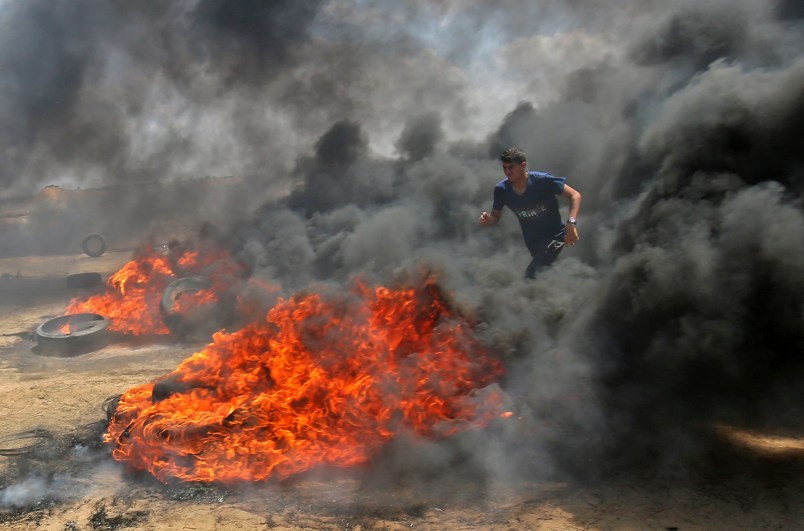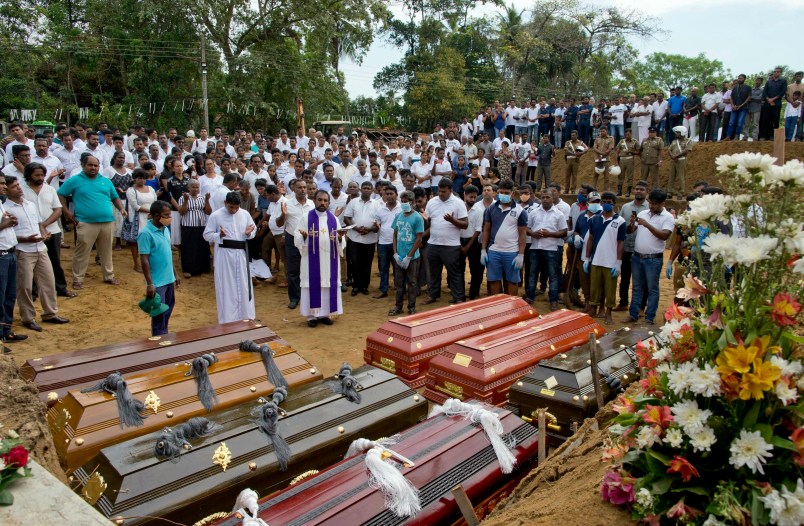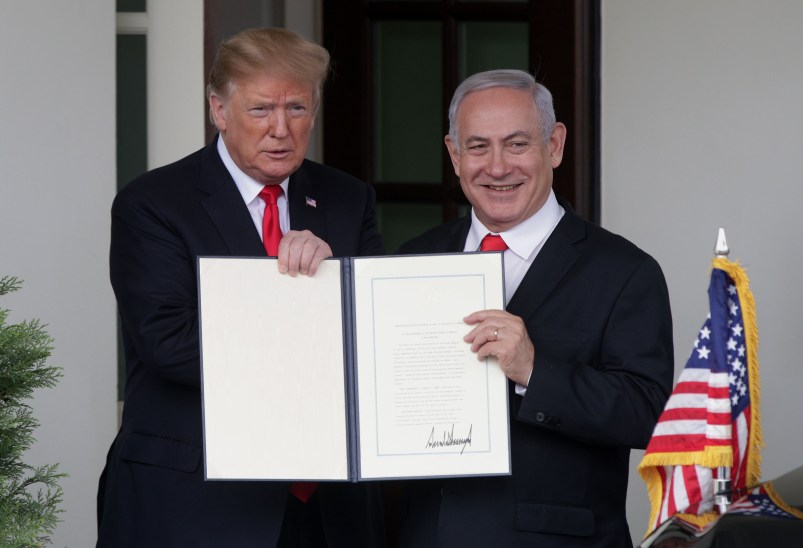JERUSALEM (AP) — Most of the protesters killed this week by Israeli fire along the border with the Gaza Strip were members of Hamas, the militant group said Wednesday, an admission that deepens the starkly different narratives on both sides over the deaths.
Israel, which has faced blistering international criticism over its response, is likely to latch on to the remarks to bolster its claims that Hamas has used the weekly border protests as cover to stage attacks.
But with the images of rifle-toting Israeli snipers facing off against seemingly unarmed protesters beamed around the world, the remarks by Hamas may do little to convince Israel’s detractors, including the Palestinians.
In an interview with Baladna TV, a private Palestinian news outlet that broadcasts via Facebook, senior Hamas official Salah Bardawil said 50 out of the nearly 60 protesters killed Monday were Hamas members, with the others being “from the people.”
Bardawil did not elaborate on the nature of their membership in the group and his claim could not be independently verified. It was unclear if the protesters he was referring to were militants or civilian supporters of the Islamic group, which rules Gaza and opposes Israel’s existence.
The affiliation may matter little to those who have deemed Israel’s response to the protests to be heavy-handed.
For Israel, it was enough to cement its narrative.
“It was clear to Israel and now it is clear to the whole world that there was no popular protest. This was an organized mob of terrorists organized by Hamas,” said Israeli Foreign Ministry spokesman Emmanuel Nahshon.
Prime Minister Benjamin Netanyahu said Israel had tallied similar numbers to Hamas and “won’t let those who call for our destruction to breach our borders and to threaten our communities.”
In response to the uproar over his remarks, Bardawil later said in a statement that Israel was “legitimizing the killing of Palestinians just because they are Palestinians or just because they are Hamas, even if they were unarmed and defending their dignity and rights.”
Organizers say the wave of border protests is meant in large part to break a decade-old blockade imposed by Israel and Egypt and pressure Israel to ease its restrictions. Since the Hamas-led protests began March 30, more than 110 Palestinians have been killed and more than 2,500 wounded by live fire, according to the Palestinian Health Ministry. Palestinian officials say the vast majority of the casualties have been unarmed protesters. One Israeli soldier has been wounded.
The weekly protests peaked on Monday when about 40,000 Gazans descended on the border area. As in previous demonstrations, the protesters burned tires and hurled firebombs and stones toward Israeli troops, and tried to attack the border fence. Israeli snipers opened fire in response, killing 59 Palestinians and wounding hundreds.
Images of the protesters being whisked away in stretchers amid the tear gas contrasted sharply Monday with jubilant scenes of the opening of the U.S. Embassy in Jerusalem by a high-powered American delegation and Israeli leaders. Hardly a mention was made of the border violence, only about an hour’s drive away.
The Israeli army has staunchly defended its actions. It points to the violent history of Hamas, says there have been shootings and bombing attacks against its forces, and fears a mass border breach.
On Tuesday, the army released a video that appeared to show protesters detonating several explosions near the border. It also said its forces had killed a squad of Hamas gunmen who opened fire at troops.
Lt. Col. Jonathan Conricus, a military spokesman, said 14 of those killed Monday were actively involved in carrying out attacks.
Omar Shakir, the local director for Human Rights Watch, said that if they were unarmed, the identity of the slain protesters and their affiliation to a militant group has little to do with Israel’s right under international law to use lethal force at a demonstration.
“These individuals that were killed, regardless of their affiliation or membership, were engaged in a demonstration in which they did not pose an immediate threat to life and were gunned down, and that’s what’s relevant,” Shakir said.
Israel says it uses live fire only as a last resort. Snipers are supposed to aim at protesters’ legs and can shoot only with approval from a commander.
Hamas’ statement comes at a moment when Israel finds itself largely isolated over its response to the protests.
Countries have summoned and recalled ambassadors, the U.N. has issued condemnations and some have called for an investigation of Israel’s actions. The Palestinians held a one-day general strike and called for three days of mourning for the victims.
The U.S. was among the few countries that came to Israel’s defense, backing its right to protect its border on the same day that it countered international disapproval of moving its embassy from Tel Aviv to Jerusalem. The Palestinians, who seek east Jerusalem as capital of their hoped-for state and vehemently oppose the U.S. move, recalled their ambassadors to four European countries that had supported it.
On Wednesday, Guatemala followed the U.S. lead, festively opening its new Jerusalem mission with Guatemalan President Jimmy Morales saying his country was bringing a message of “love, peace and fraternity” to Israel. Paraguay said it also will move its embassy to Jerusalem. Romania, the Czech Republic and Honduras have said they are considering doing the same.






